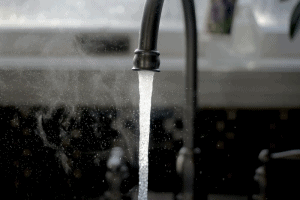Staying hydrated throughout the day has never been simpler, thanks to the variety of ways water can be prepared. Over the last several decades, buying bottled water has become more widespread. The various advantages of bottled water, such as portability and health benefits, maybe a contributing factor.
Bottling India is dedicated to providing the highest service to you and your loved ones. We’ve got your back if you want high-quality spring water whenever you need it. For your health’s sake, we’re trying to make bottled water more readily available in different areas by installing bottled water plants.
What are the advantages of purchasing bottled water over the many alternative options? So, how about we take a look at this?
Benefits of Drinking Bottled Water
There are several benefits to purchasing bottled water.
Convenience
Users place a high value on products that are easy to use. Drinking two litres of water a day is recommended for good health and endurance. Because of this, removing any roadblocks in the way of getting the recommended daily intake of water is critical.
Easy-to-get and quick-to-use solutions have a hard time losing their allure. The most practical option is to use bottled water, which is readily available and comes in various volumes. When you’re occupied with other tasks, it’s easy to overlook the importance of staying hydrated throughout the day.
Even though they include ingredients that increase thirst and the risk of dehydration, caffeinated beverages are generally our first choice when we’re short on time. Moving a container of drinking water conveniently is one of the major benefits of always having a supply on hand. The best approach to remain hydrated is to always have water on hand.
Variety
The water-only section of a supermarket may be intimidating to some shoppers. It might be difficult to zero down on a certain type when there are so many to choose from.
We’ll take a look at a few sites where bottled water may originate from:
- Mechanical filtering or some other way is used for purified water. Distillation is one of several methods for cleaning a broad range of materials.
- Water that has been boiled to remove contaminants is referred to as distilled water. This is how distilled water is different from regular, clean water. Inorganic minerals and metals have melting temperatures greater than or equal to 212 degrees Fahrenheit, making up for this pollution. Boiling water yields a gaseous byproduct in the distillation process. Those impurities that didn’t boil off during the distillation process remain in the distillate’s end product. Before the vapour is placed into bottles, it has time to return to a liquid state.
- The FDA defines spring water as “a subterranean deposit from which water spontaneously rises to the surface.” In its existence, water sucks up vital nutrients from the soil. Because of this, more water is required. Spring water must come from an underground aquifer, and there must be an aquifer to qualify.

Taste
The Food and Drug Administration (FDA) has imposed tight standards for the sale of water in bottles. It has no flavour, unlike tap water, which has a distinct taste. Perhaps this results from the product being bottled in its most natural form. This means that poisons and pollutants have a little window of opportunity to re-enter the system. It’s less likely to be contaminated by other contaminants or impurities when bottled in its purest form.
Products that have been flavoured with additional compounds are also an option. This provides you with a wider range of options to choose from. You may wish to look at this alternative to sugary beverages.
Availability
Almost every retail location sells bottled water, including supermarkets, vending machines, and small local businesses. Even more convenient, bottled water is available almost everywhere.
The customer may go on as normal to ensure that their current bottle will not run out before a new one is ready. Mineral water bottling plants are now installed in almost every city, improving product availability.
Health Benefits
Water is the only beverage that does not include calories or other substances. In addition, it provides several health advantages. For the body to maintain a healthy temperature and physical and mental functioning, it needs a particular quantity of water.
Drinking water from the kitchen sink is generally safe. However, is this the best method to make dietary decisions for our bodies? It is especially important for those with compromised immune systems who drink water to ensure that it does not contain pathogens like Cryptosporidium before consuming it. Polluted water is more likely to cause illness in people like this.
According to the Centers for Disease Control and Prevention, look for reverse osmosis-treated distilled water.
It has been enriched with electrolytes, vitamins B and E, and a variety of additional vitamins and minerals. They are excellent choices for getting back the minerals you’ve lost via strenuous activity.
Becoming fully prepared for the worst-case scenario
Everyone should have a water supply on hand in an emergency, according to the Federal Emergency Management Agency (FEMA). The only way to understand how difficult it will be to get water is to live through a catastrophe. As a result of its small size, ease of storage, and extended shelf-life, bottled water may be useful in an emergency.
Because the water is already in bottles, it is much simpler to estimate how much water each family member needs daily. Smaller quantities of ready-to-use water have already been broken down as a consequence. This method eliminates the need to make educated guesses about the size of a dish.
At Bottling India, we are focused on delivering quality drinking water, for which we have ensured the installation of the mineral water bottling plant. Your family or workers will be drinking the cleanest water available whether we install filtration or purification systems.
 Request a Quote
Request a Quote
